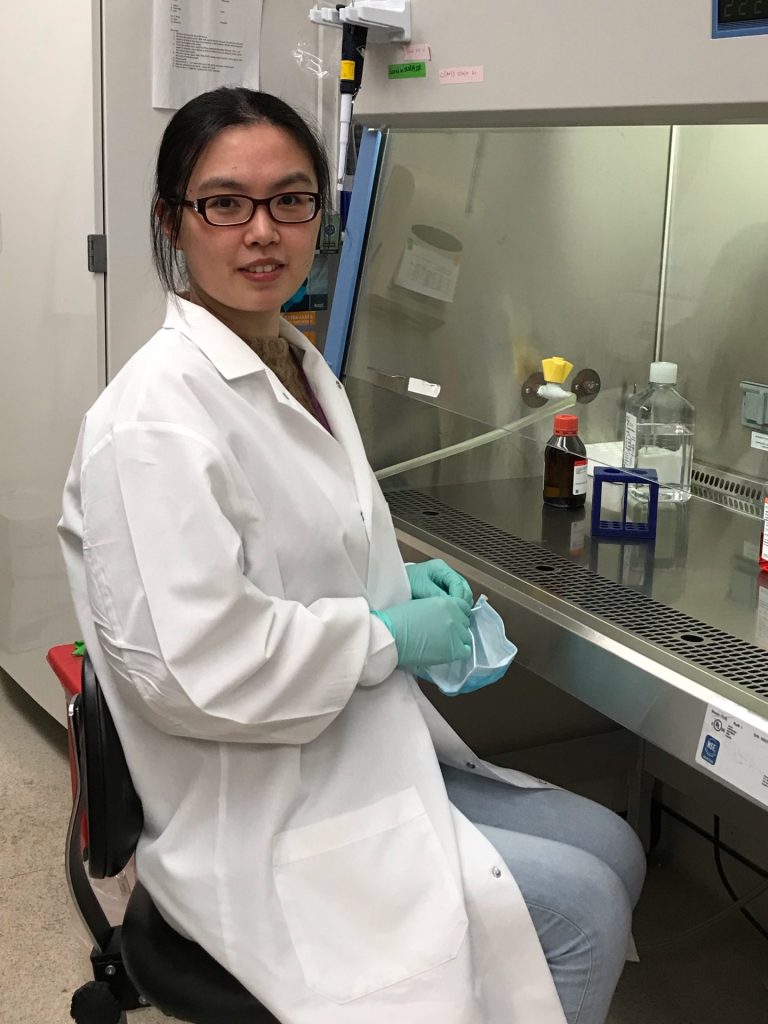
Dr. Xueyang Yu, of Massachusetts Institute of Technology, is a 2021 recipient of OCRA’s Ann and Sol Mentored Investigator Award. Her project, “Macrophage Control of the Microenvironment Drives HGSOC Progression,” explores how tumor microenvironments influence disease progression for high-grade serous ovarian carcinoma, the most common type of ovarian cancer.
What initially sparked your interest in science?
I cannot remember a particular decisive moment that sparked my interest in science. It’s more like a belief that one day all the facts and truth about our world and about ourselves will be elucidated. And we should just contribute to it.
What drew you to the field of ovarian cancer research?
Ovarian cancer is so detrimental to women in every aspect. It is a threat to life and a deep shadow mentally as well. The spread of initial cancer cells and the incidence of this disease grow with accumulated menstrual cycles, a special type of tissue damage and repair that is inevitable to every woman. Research in ovarian cancer is meaningful to me, because it is a way to know the mechanism behind such a natural event, and it will bring a better defense and therapy to fight against the natural process of disease progression.
Can you explain your research project?
Ovarian cancer has the highest mortality rate among the gynecologic cancer types in the United States due to the difficulties in early diagnosis, the development of chemotherapy resistance, and the dismal outcome of immunotherapy. Stress, inflammation and cell injury signals are often accompanying early tumor progression and are seen following the administration of chemotherapy. How the presence of these stress signals in the tumor microenvironment contribute to the development and progression of ovarian cancer, is not clear.
One key stress signaling molecule called MK2 has implications in other types of cancer with unknown mechanisms. We will test the hypothesis that MK2 coordinates extracellular stress signals, which in turn creates a microenvironment that supports ovarian cancer cells to prosper, and limits anti-tumor surveillance by the immune system.
To test this, we will compare non-tumor cells with or without MK2 in mouse models that reflect the true origin of ovarian cancer and consolidate the results in human cells. By doing so, we will be able to understand what cell types macrophages would interact with under the influence of MK2, and what molecules make macrophages that promote ovarian cancer development.
The expected results will help explain how macrophages change from being anti-tumorigenic to pro-tumorigenic, identify markers for the tumor-promoting status of macrophages, and reveal MK2-related novel therapeutic targets to prevent or slow ovarian cancer development, and improve the treatment of this disease by both chemotherapy and immunotherapy approaches.
What motivates you to persist in your research?
Tissue damage and repair is such a natural process that everyone will encounter in their life. Through studying key molecules in this pathway, we should be able to reveal novel strategies to help ovarian cancer patients.
What is your hope for the field of ovarian cancer research?
Currently PARPi is a promising and a leading way to treat ovarian cancer. I hope our field of ovarian cancer research can generate more powerful targets/drugs that benefit more patients.
If you had the opportunity to personally thank someone from the OCRA community who supported your work, what would you say?
I applied for and received the grant in the era of Covid-19, when not only our lab research work was halted, but also numerous cancer patients had to face a big change of care and support routine. The arrival of this grant tells me that even under hard times, people are still full of energy to support each other and full of love for life. I am truly thankful for your work or your donation in this special time and I will pass down your goodwill through my research to everyone.
See more OCRA-funded research projects focused on tumor microenvironments, and high-grade serous ovarian cancer.


